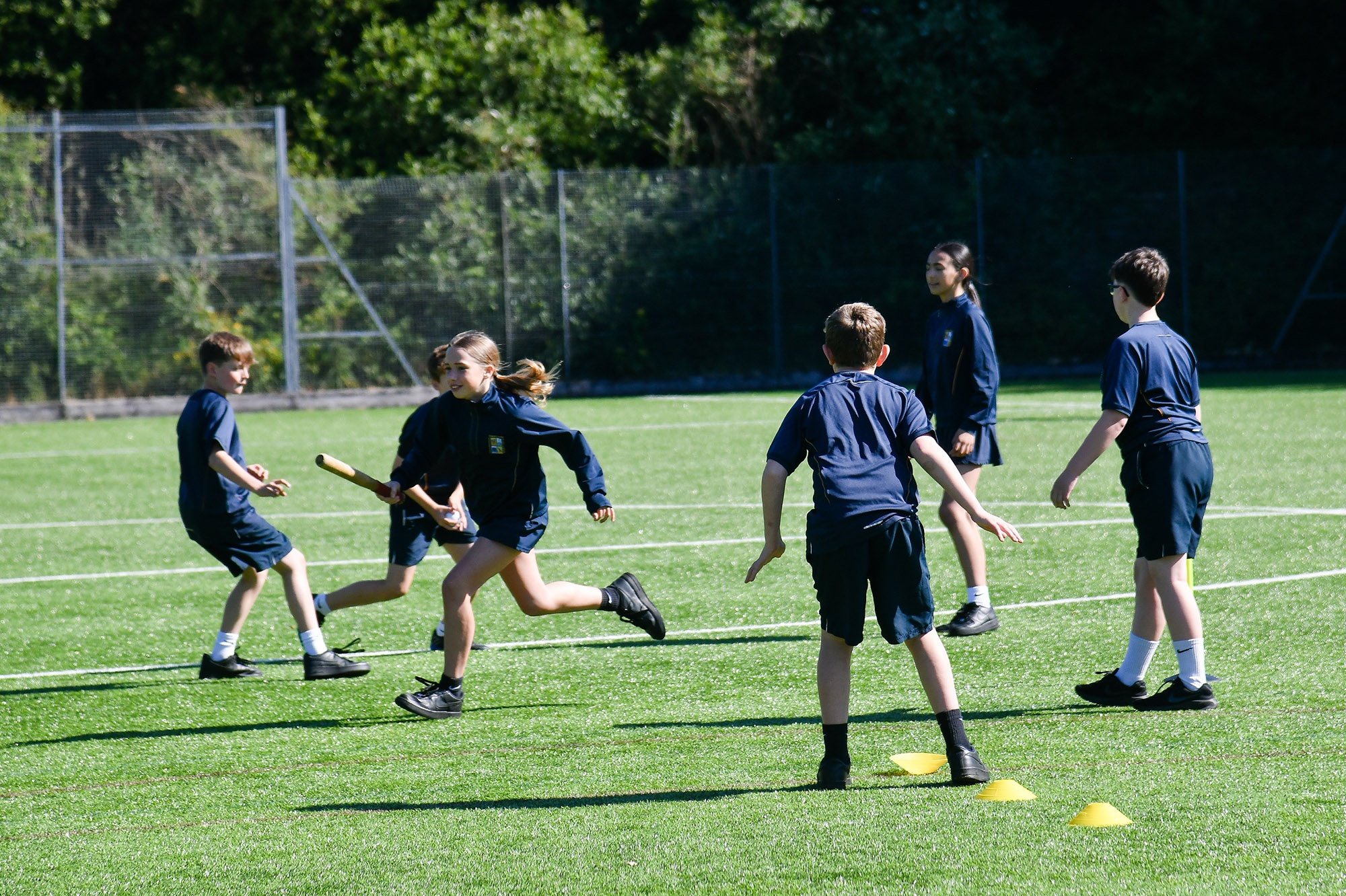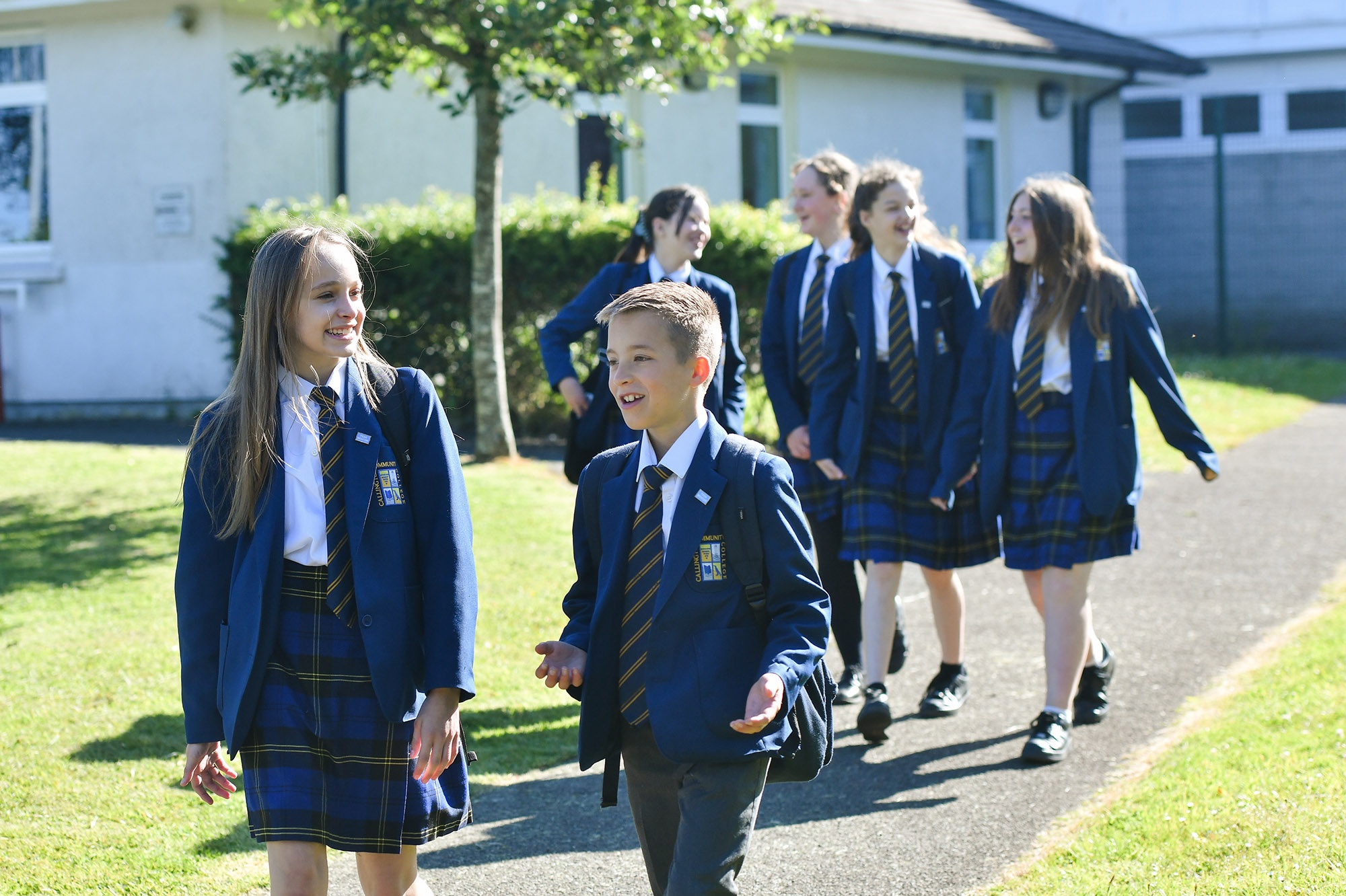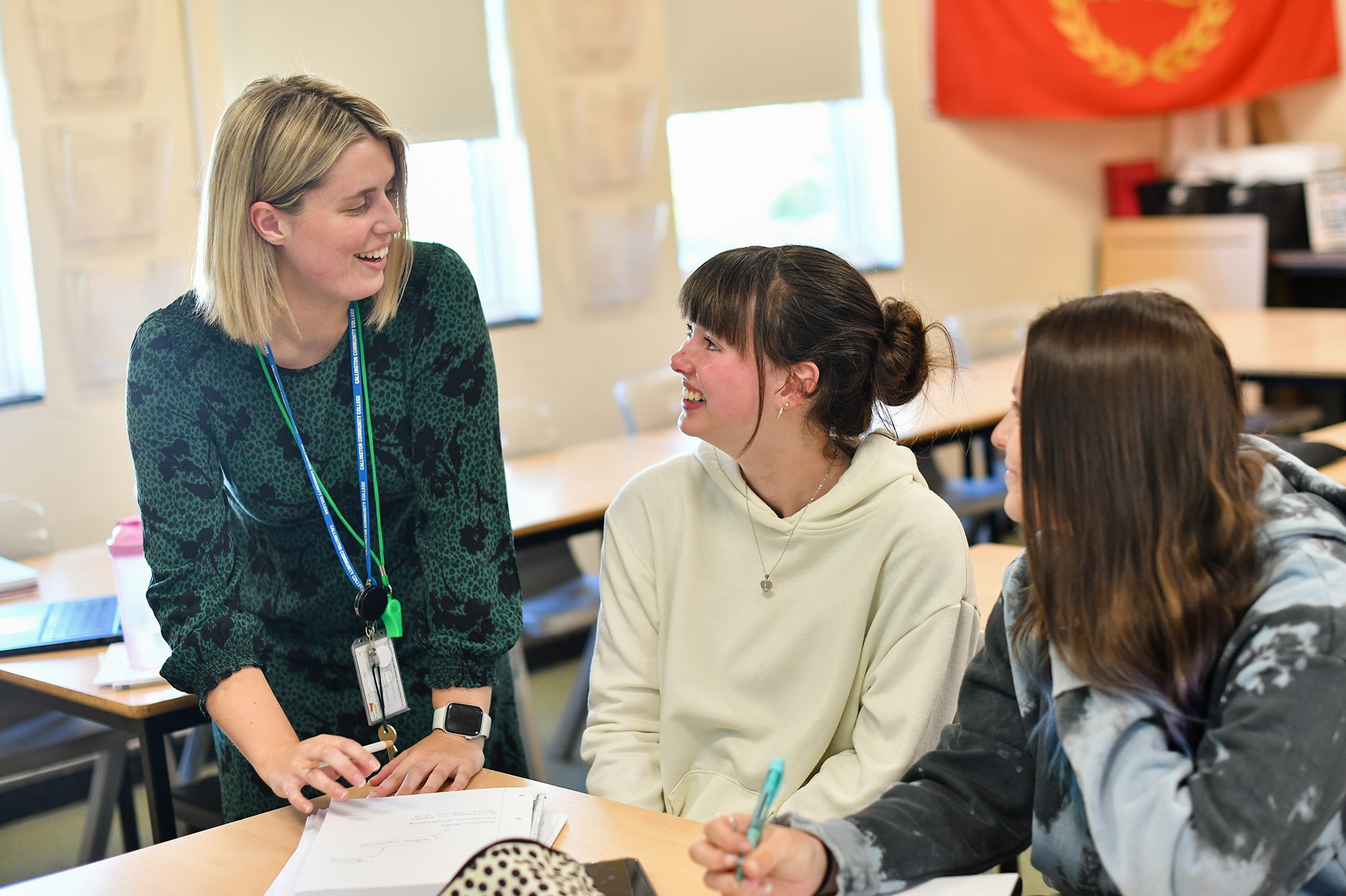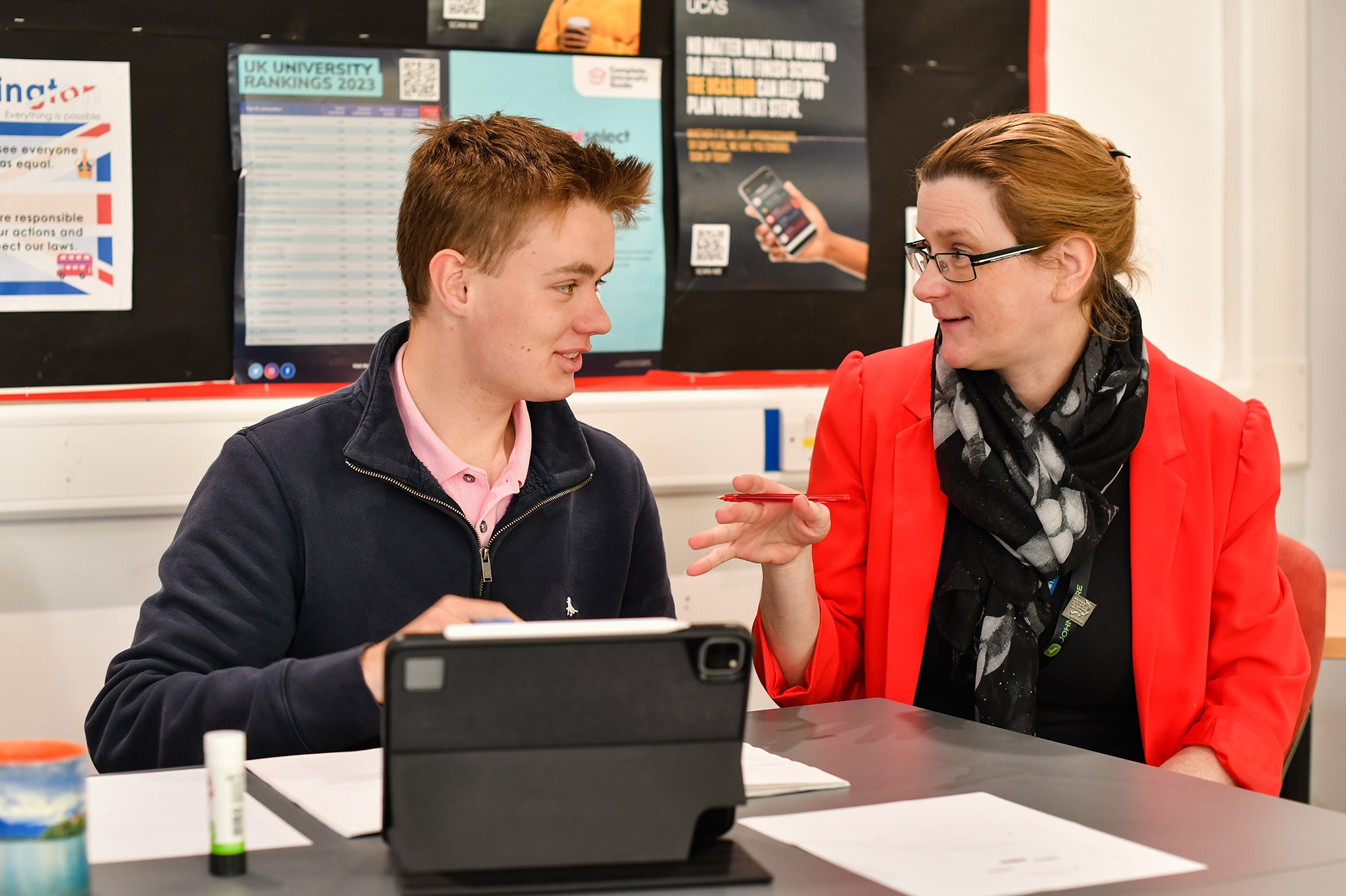Pupil Premium
Callington Community College is committed to ensuring that every individual student is given the best possible chance of making excellent progress and so achieve their potential. Disadvantaged Students funding is allocated to every school based on numbers of students known to be eligible for free school meals, students who have been registered for free school meals at any point in the last six years, students who have been looked after in care, children who have left local authority care due to adoption, special guardianship order, a child arrangements order or residence order and children of service personnel. Each school can decide how to allocate this additional funding to best ensure each student thrives and makes excellent progress in their learning.
2016 – 2017 Disadvantaged Students
The Pupil Premium strategy was reviewed in September 2016 and a copy of this can be found on the following link. The date for the next review is September 2017.
A breakdown of our Pupil Premium allocation:
| FSM | /6 | LAC | Adopted from Care | Total | Forces | |
| Year 7 | 17 | 25 | 2 | 1 | 45 | 4 |
| Year 8 | 17 | 40 | 1 | 1 | 59 | 6 |
| Year 9 | 18 | 23 | 2 | 3 | 46 | 4 |
| Year 10 | 19 | 29 | 2 | 0 | 50 | 9 |
| Year 11 | 12 | 30 | 1 | 0 | 43 | 7 |
| Sixth Form | 0 | 0 | 2 | 0 | 2 | 0 |
| Totals | 83 | 147 | 8 | 5 | 243 | 30 |
Total Student population in Years 7 – 11 = 1050.
Disadvantaged Students = 263 which is 21% of student population.
Callington Community College was allocated £203,830 for the school year 2016-17.
In school barriers
Behaviour – There continues to be a reduction in the number of disadvantaged students receiving sanctions such as fixed-term exclusions, referrals to the school’s isolation room and after-school detentions. Nevertheless, this group is still disproportionately over-represented and will be a focus of our Pupil Premium strategy this academic year.
The Progress 8 gap of disadvantaged students (PP vs non PP) has improved from 0.77 in 2015 to 0.46 in 2016. However, the Progress 8 score for disadvantaged pupils was -0.36 and therefore the progress of disadvantaged pupils remains a priority.
Homelearning – Disadvantaged children often struggle with the demands of homelearning and therefore on average receive lower homework grades than their non-disadvantaged peers.
External barriers
Attendance – with the introduction of a new Education Welfare Officer, the focus on attendance by all staff at the college remains high priority. The % gap between Pupil Premium and non-Pupil Premium is 4.34% in favour of non-Pupil Premium.
Access to funds – We recognise that not all pupils who are eligible for Pupil Premium funding are socially disadvantaged, however, staff are encouraged to apply for funding to remove any barriers to learning both within the classroom and including extra-curricular activities.
Projected spend for Disadvantaged Students
KS4:
- Weekly individual + small group maths tutoring
- Weekly individual + small group English tutoring
- Vocational courses (inc Construction and Beauty)
- Specific mentoring groups run by Assistant Principals to raise achievement and aspirations (Superstars Academy)
- After College supported study sessions
- Review of every students timetable in year 11 and re-coursing as needed
- Offsite educational, specialist provision.
- 1:1 tuition for individuals who are unwell, school phobic or below target grades in key areas.
- To create a learning café for Year 11 students to provide targeted intervention, revision sessions and support.
- Progress coaching (weekly intensive tracking and intervention)
- Pastoral Support
KS3:
- Literacy tutoring (Years 7 – 8)
- Literacy extraction groups (Years 7 and 8)
- Additional Maths support in class (Years 7 – 8)
- Music tuition
- Pastoral Support
Support
- Education Welfare Officer – to focus on students below 90% attendance.
- Independent careers advice and guidance
- Mentors within the College
- Progress Coaches
- Cost of study materials, e.g. study guides, maths equipment
- After College Bus – Transport
- Additional hours for progress co-ordinators to track student progress
- Curriculum trip support
- Student progress plans for all pupil premium students to be shared with staff
- Counselling
- Support with uniform costs and school equipment
- Individualised timetables
Enrichment:
- Challenge Week opportunities
- Run aspirational events e.g. University trips.
- Full and varied extra-curricular programme
Prioritised use of pupil premium
We have prioritised the use of pupil premium as follows:
| £ | |
| Raising Achievement Leaders (20% time) | 37,694 |
| Senior Assistant Principal – responsibility for PP (20% time) | 15,000 |
| Awards | 2,000 |
| 1:1 Maths extraction in Year 7-8 | 7,000 |
| Revision guides and Learning Kits (stationary) | 3,000 |
| 1:1 Literacy extraction in Year 7-8 | 7,000 |
| Education Welfare Officer (50% time) | 14,500 |
| PP Focus Groups. Small group work. Extraction groups | 20,400 |
| ECDL ICT intervention | 1,500 |
| KS3 and KS4 student support service (20% time) | 3,000 |
| Careers Service | 8,432 |
| Support for ingredients and materials in catering | 4,000 |
| Trips/Visits (raising aspirations – Exeter Uni, Porthpean residential) | 5,000 |
| Director of Progress (tracking performance data) | 12,648 |
| CHES (educational support for students under CAHMS) | 8,250 |
| External Maths tuition | 3,000 |
| Accelerated Reader programme (20% cost to Y 7 + 8) | 2,600 |
| Late bus to allow PP students access to extra-curricular | 15,000 |
| Uniform | 500 |
| Study Skills Programme and revision support | 1,000 |
| Music Lessons Year 9 | 1,000 |
| PP review from external consultant | 1,000 |
| Skills Centre (20% staff cost) | 7,000 |
| Admin support for Senior AP and Director of Progress | 6,324 |
| Year 6 transition programme | 1,000 |
| Alternative Provision (APA) | 10,000 |
| Counselling service | 5,000 |
| Year 11 Super Stars Academy | 2,000 |
| Total: | 204,848 |
2015 – 2016 Impact Statement
Total Student population in Years 7 – 11 = 1100
Disadvantaged Students = 270 which is 24.5% of student population
Callington Community College was allocated £192,000 for the school year 2015-16.
Attainment
| Disadvantaged | Other students | |||||||
| Measure | 2014 CCC | 2015 CCC | 2016 CCC | 2015 NA | 2014 CCC | 2015 CCC | 2016 CCC | 2015 NA |
| 5A*-C with E&M | 40% | 41% | 40% | 36% | 63% | 62% | 70% | 63% |
| Basics | 40% | 46% | 42% | 39% | 65% | 67% | 72% | 65% |
| APS capped 8 | 274.3 | 253.6 | 262.7 | 261.3 | 328.6 | 325.1 | 335.6 | 325.6 |
| Ebacc | 5% | 2% | 9% | 11% | 23% | 18% | 23% | 28% |
The proportions of disadvantaged students gaining the basics and 5 A*-C (inc EM) has decreased slightly since 2015 but are still above the national average for disadvantaged students. For other students there have been increases in all attainment measures and all except the EBACC are above the national average for other students. The APS for disadvantaged students has recovered from the drop last year and is now slightly above the national average.
Progress
| Disadvantaged students | Other students | |||||||
| Measure | 2014 CCC | 2015 CCC | 2016 CCC | 2015 NA | 2014 CCC | 2015 CCC | 2016 CCC | 2015 NA |
| Best 8 VA inc E&M | 998.7 | 951.7 | 970.1 | 976.3 | 1018.3 | 1017.4 | 1013.4 | 1008.7 |
| En LoP 3+ | 57% | 48% | 60% | 58% | 75% | 77% | 83% | 74% |
| En LoP 4+ | 20% | 11% | 21% | n/a | 35% | 35% | 41% | 35% |
| Ma LoP 3+ | 57% | 59% | 48% | 49% | 78% | 77% | 76% | 72% |
| Ma LoP 4+ | 3% | 11% | 14% | n/a | 29% | 30% | 40% | 35% |
| Progress 8 | -0.72 | -0.36 | n/a | n/a | 0.21 | n/a | ||
Progress 8 for disadvantaged students has improved by nearly 4 grades on average across the 8 grades counting in P8. This is evidence of the impact that the work with disadvantaged students has had. The students are still not performing as highly as we would like so this will continue to be an area of focus for 2016-17 and beyond. The rates of progress in general for disadvantaged students have improved since 2015 but not yet to the levels they were at in 2014 for VA and Maths progress. Overall value added and proportions of disadvantaged students making expected progress is now in line or above national averages for disadvantaged students. Figures for non-disadvantaged students have held up well on all measures.
Impact of Whole College Support for Disadvantaged Students
Careers Guidance
All disadvantaged students have an individual career and guidance interview in Year 10 and 11. All students had a successful planned progression route.
No NEET students (not in Education, Employment for Training).
Music
Peripatetic music lessons were commissioned for 20 Pupil Premium students. The lessons were either partially or fully funded depending on need.
Educational Welfare
All disadvantaged students below 90% met with EWO with family. This was monitored weekly. Disadvantaged student attendance 90.03% compared to 94.37% for other students.
Breakdown of money spent:
| £ | |
| Raising Achievement Leaders (20% time) | 37,694 |
| Senior Assistant Principal – responsibility for PP (20% time) | 15,000 |
| Awards | 2,000 |
| 1:1 Maths extraction in Year 7-8 | 7,000 |
| Revision guides and Learning Kits (stationary) | 3,000 |
| 1:1 Literacy extraction in Year 7-8 | 7,000 |
| Education Welfare Officer (50% time) | 14,500 |
| PP Focus Groups. Small group work. Extraction groups | 20,400 |
| ECDL ICT intervention | 1,500 |
| KS3 and KS4 student support service (20% time) | 3,000 |
| Careers Service | 8,432 |
| Support for ingredients and materials in catering | 4,000 |
| Trips/Visits (raising aspirations – Exeter Uni, Porthpean residential) | 5,000 |
| Director of Progress (tracking performance data) | 12,648 |
| CHES (educational support for students under CAHMS) | 8,250 |
| External Maths tuition | 3,000 |
| Language Assistants (20% time) | 2,976 |
| Accelerated Reader programme (20% cost to Y 7 + 8) | 2,600 |
| Late bus to allow PP students access to extra-curricular | 15,000 |
| Uniform | 500 |
| Study Skills Programme and revision support | 1,000 |
| Music Lessons Year 9 | 1,000 |
| PP review from external consultant | 1,000 |
| Skills Centre (20% staff cost) | 7,000 |
| Admin support for Senior AP and Director of Progress | 6,324 |
| Year 6 transition programme | 1,000 |
| Alternative Provision (APA) | 10,000 |
| Total: | 200,824 |
Applying for Free School Meals
If you feel you could be eligible for free school meals, it is very simple to apply and takes only moments to do. Simply contact Cornwall County Council on schoolmeals@cornwall.gov.uk and give your national insurance number and your child’s date of birth. You will be told immediately if you are eligible and the next steps in the process. Alternatively apply on line at www.gov.uk/apply-free-school-meals. Please contact the College if you require support to do this.








